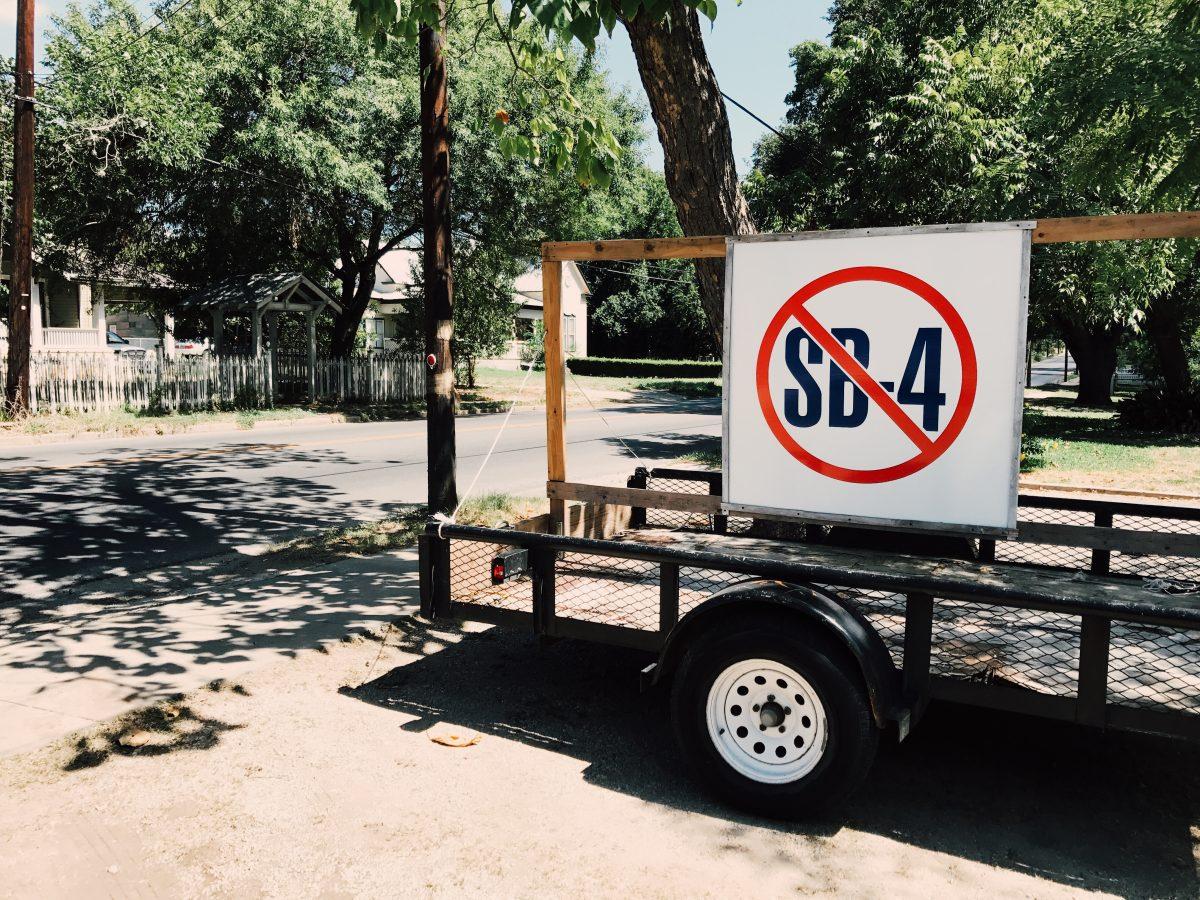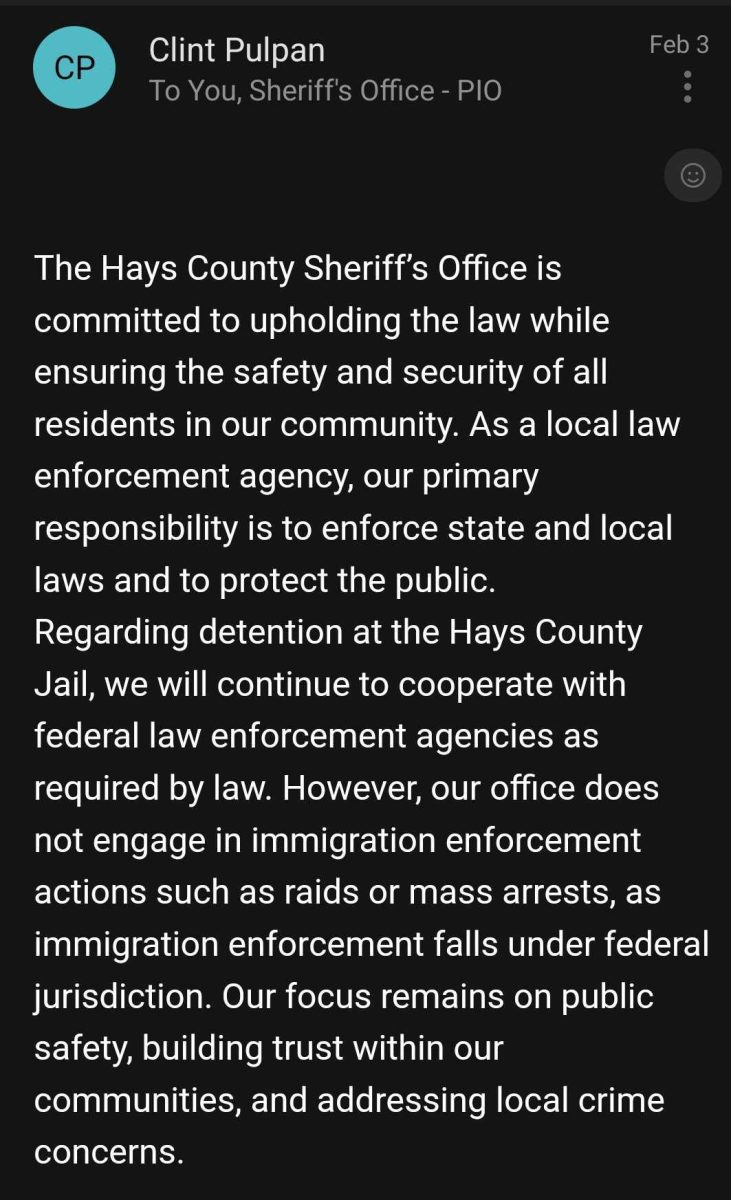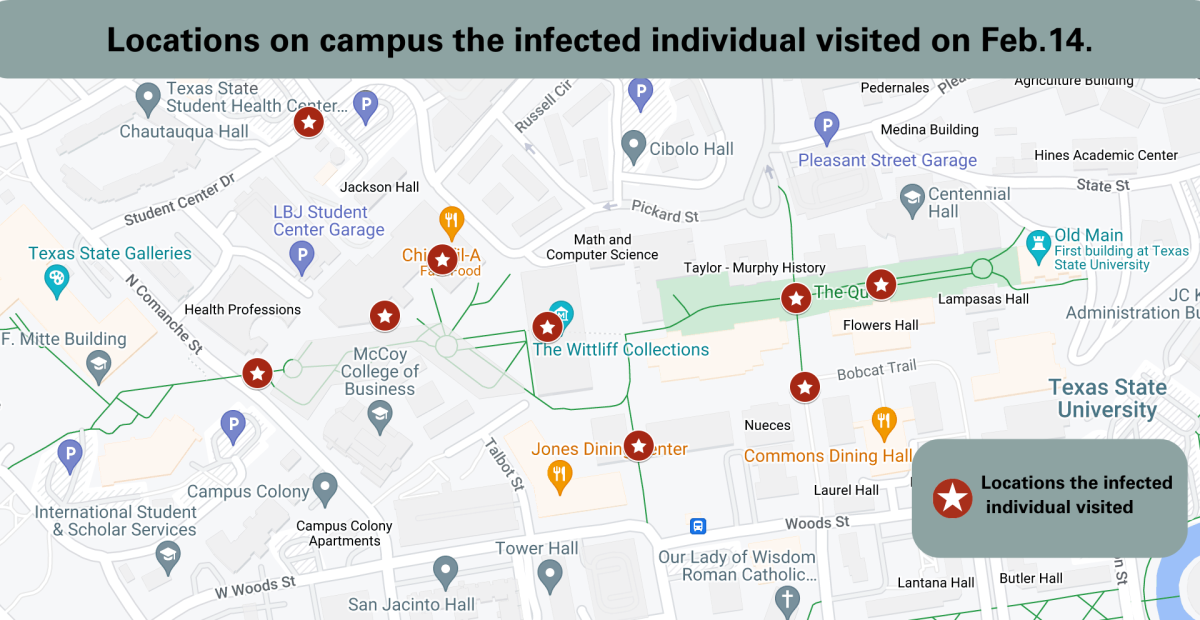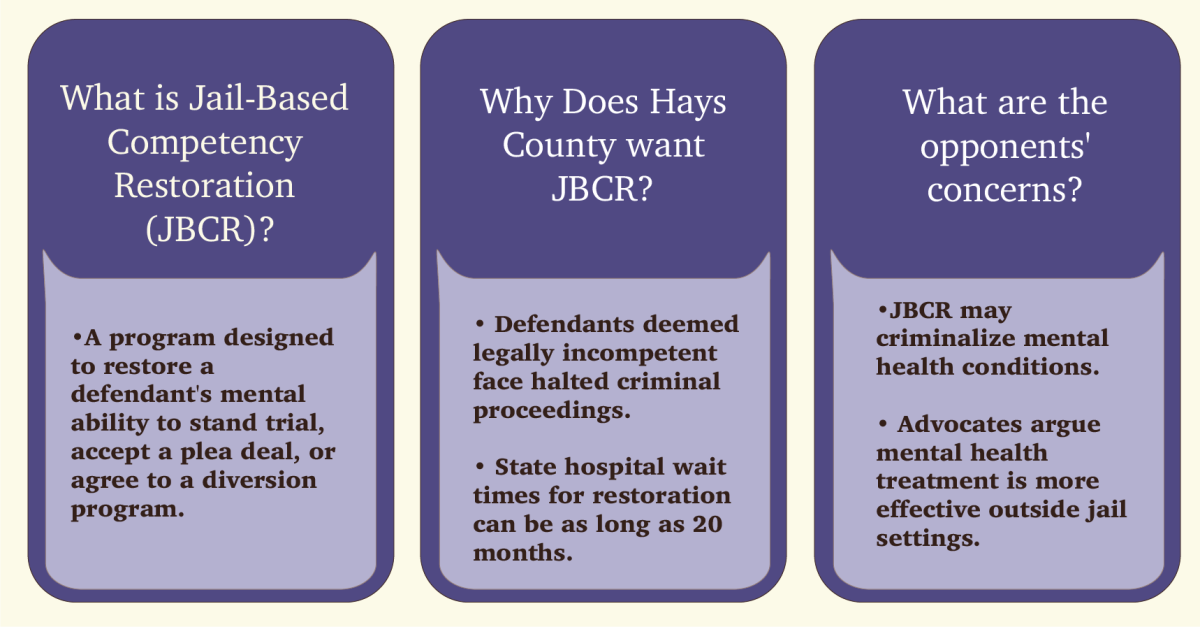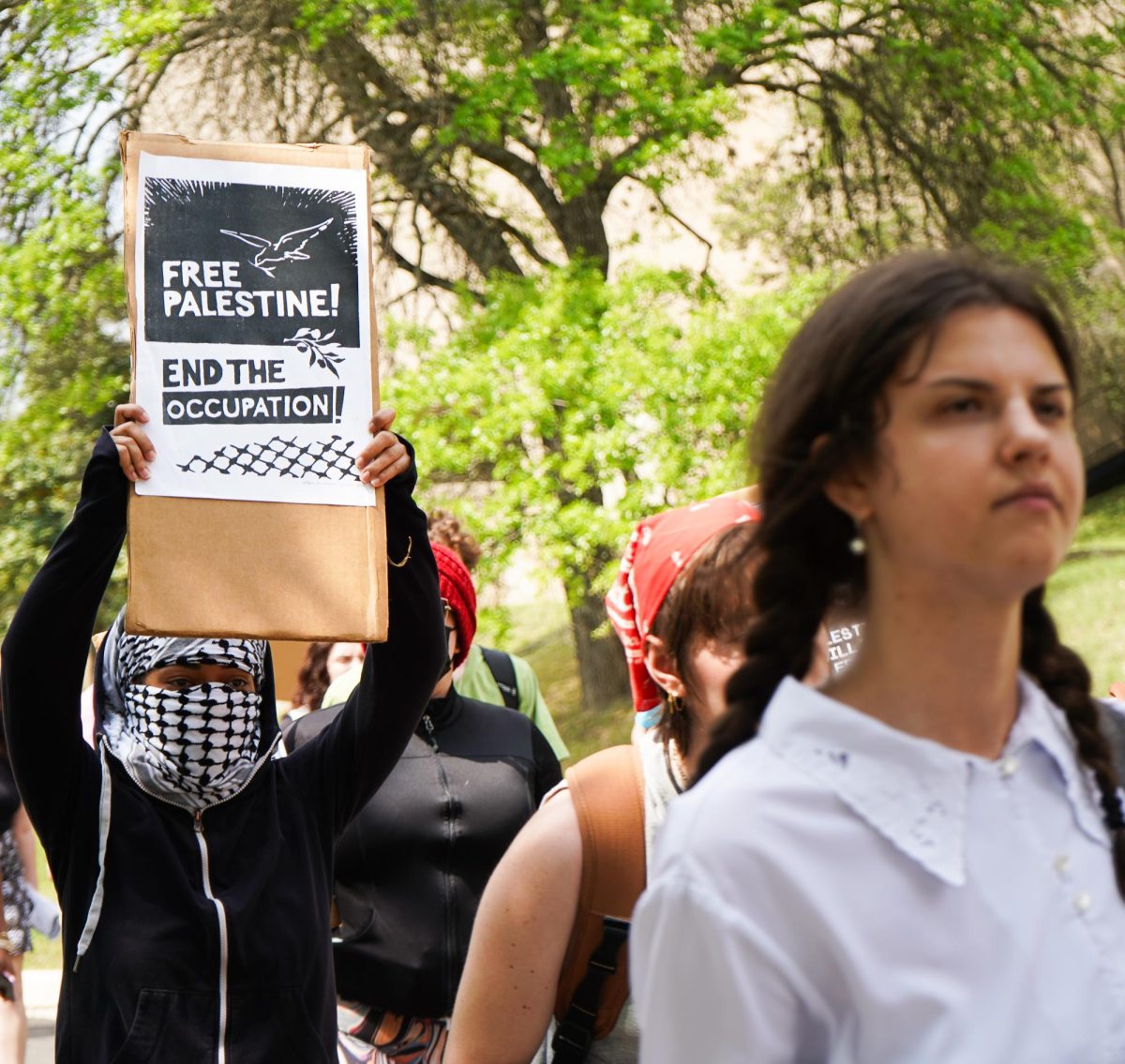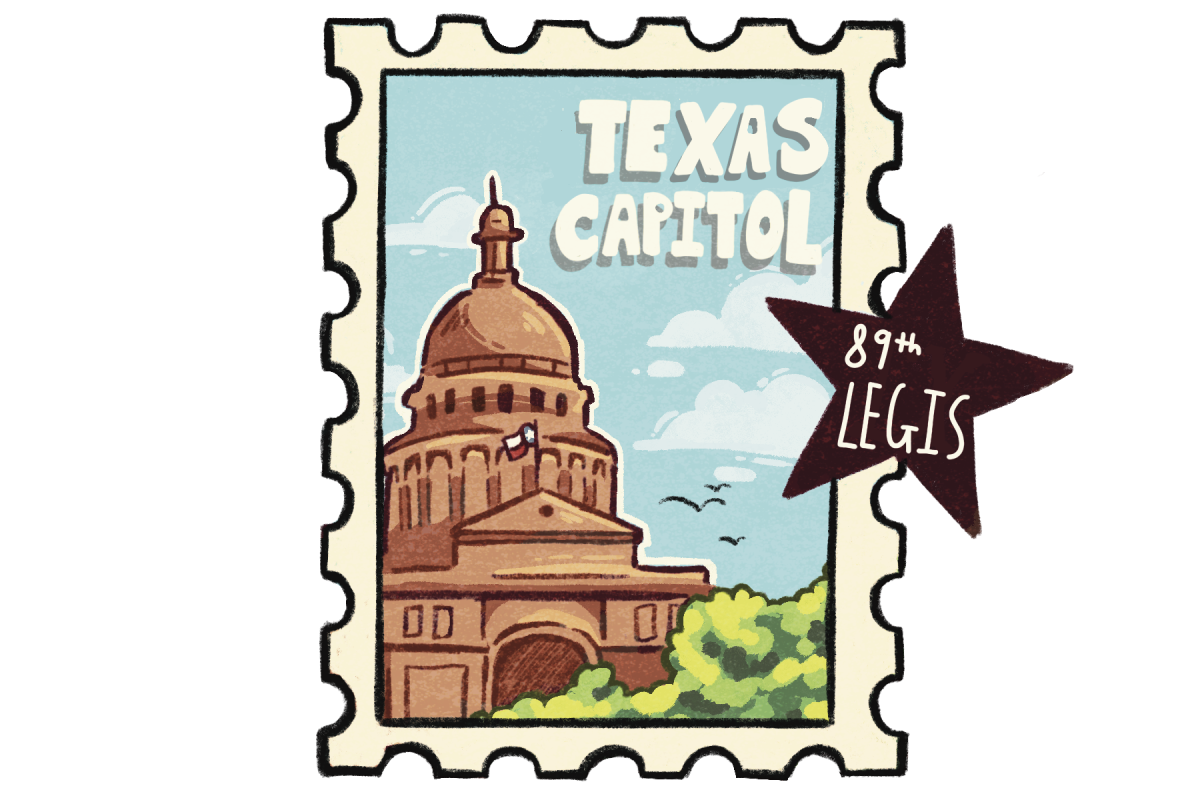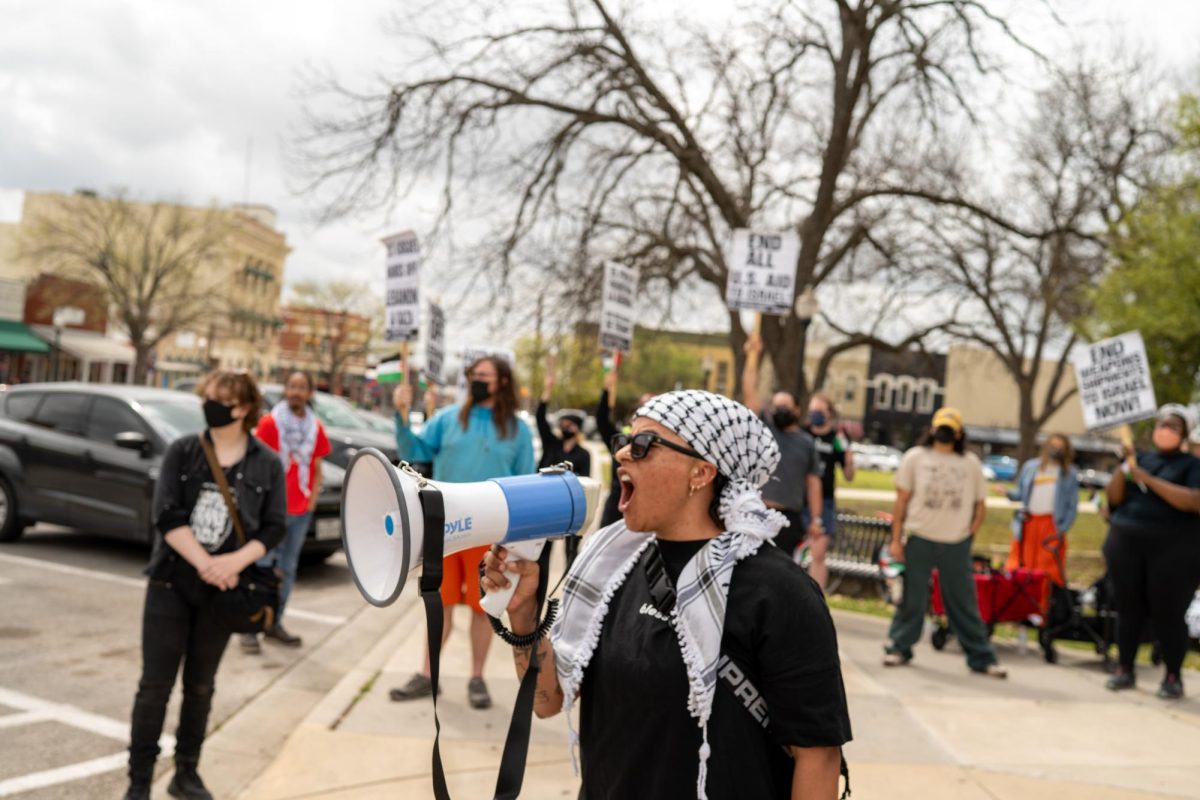When versions of Senate Bill 4 were introduced in early February of this year, the so-called “anti-sanctuary cities” bill raised may questions and fears for immigrant members of the San Marcos community.
The legislation requires sheriffs and officers to comply with federal immigration authorities and prohibits local law enforcement from adopting policies that would impede inquiries of a person’s immigration status who is arrested or detained. Authorities who violate could face fines, a Class A misdemeanor, or potential jail time.
Some residents, however, fear that regardless of citizenship, SB 4 will allow local and state law enforcement to racially profile persons of color, specifically those of Hispanic decent that comprise nearly 38 percent of San Marcos citizens.
Ruben Becerra, former San Marcos mayoral candidate and owner of Gil’s Broiler and Dixie Cream Donuts, said the implications of SB 4 are bad for business.
“The point is, there is a lot of people that will be affected negatively by that potential [of being arrested or detained] and that’s scary enough for people to stay home, and when they stay home, I don’t have customers,” Becerra said. “Just to cherry pick people of color and add an additional layer of scrutiny is not right.”
Although the implications of the bill may create a chilling effect among the immigrant community, local activist groups are using their voice for those that don’t have one.
Karen Munoz, activist and co-founder of the grassroots organization Mano Amiga, organized “know your rights” training meetings and informative pamphlets after the ICE raids in Austin earlier this year.
“After the ICE raids in Austin, I texted my friend about it and we decided other members of the community must be concerned, so a few days later we organized a meeting at Centro with about 20 community members to figure out a plan moving forward,” Munoz said. “From there we set up “know your rights” trainings to inform the public and we also set up a hotline to connect people to other resources as well. We took what Austin is doing with Grassroots Leadership and tried to make it more specific to San Marcos.”
Other members of the community share a different perspective of the law’s intent.
Naomi Narvaiz, a member of the Republican Party of Texas and Hispanic immigrant herself, expressed her belief that the implementation of SB 4 is necessary to preserve the American way of life.
“It is a shame what’s going on, but we cannot take any more people because if we take more, then our system here will fail,” Narvaiz said. “We need to get our home in order, then have people come over the legal way and pursue whatever dreams they have.”
Despite mounting public pressure, the San Marcos City Council delayed addressing the subject on the council’s agenda for several months.
On Aug. 15, after three hours of deliberation in a closed executive session, the council released a statement read by Mayor John Thomaides, unanimously agreeing that it would not be joining the lawsuit alongside Austin and other nearby municipalities, including Houston, Dallas and San Antonio, against SB 4.
The decision evoked strong reactions from the public and left many citizens unsatisfied with the council’s ruling.
Jordan Buckley, San Marcos resident, criticized the council for waiting three and a half months before making its decision public.
“It has taken you three months and sixteen days to address the most severe anti-immigrant and discriminatory law to take effect in our town, and today is the day that we bring it up,” Buckley said. “I ask you that if this body composition reflected that of our community, would we have had to wait three months to have this conversation?”
On Aug. 22, the city council called for a special meeting to consider filing an amicus brief, a legal document submitted to the court with the intent of influencing the court’s decision. The meeting concluded with a unanimous vote in favor of filing a brief in opposition of SB 4, 10 days before the law was scheduled to go into affect.
U.S. District Judge Orlando Garcia granted a preliminary injunction Aug. 30 to halt the implementation of certain aspects of the bill, yet his decision to halt the detainer provision was appealed by the U.S. 5th Circuit Court of Appeals in New Orleans Sept. 25.
The 5th Circuit Court ruled that parts of the legislation would go into effect, including the detainer provision that requires jail officials to honor detainer requests from federal law enforcement with the condition that jails do not need to comply if the person being detained can provide proof of lawful presence.
While the potential for full implementation of the law is still uncertain, the state’s appeal of Garcia’s rulings is scheduled for Nov. 6.
Categories:
The implications of SB 4 in the San Marcos community
September 30, 2017
Photo by Shayan Faradineh
0
Donate to The University Star
Your donation will support the student journalists of Texas State University. Your contribution will allow us to purchase equipment and cover our annual website hosting costs.
More to Discover



